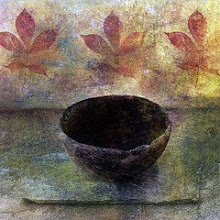 Over time I have come to realize that people often associate Buddhism and Buddhists with peace, meditation, and nonviolence. In fact many seem to think that saffron
Over time I have come to realize that people often associate Buddhism and Buddhists with peace, meditation, and nonviolence. In fact many seem to think that saffron or maroon robes and a peaceful smile are all it takes to be a Buddhist.
However, as a Buddhist, I feel a little
discontented when Buddhism is associated with nothing beyond vegetarianism, nonviolence, peace, and meditation. Prince Siddhartha, who sacrificed all the comforts and luxuries of palace life, must have been searching for more than passivity and shrubbery when he set out to discover enlightenment.
When a conversation arises, a non-Buddhist may casually ask, “What makes someone a Buddhist?” That is the hardest question to answer. If the person has a genuine interest, the complete answer does not make for light dinner conversation, and generalizations can lead to misunderstanding. Suppose that you give them the true answer, the answer that points to the very foundation of this 2,500-year-old tradition.
One is a Buddhist if he or she accepts the following four truths:
All compounded things are impermanent.
All emotions are pain.
All things have no inherent existence.
Nirvana is beyond concepts.
These four statements, spoken by the Buddha himself, are known as “the four seals.” Traditionally, seal means something like a hallmark that confirms authenticity. For the sake of simplicity and flow we will refer to these statements as both seals and “truths,” not to be confused with Buddhism’s four noble truths, which pertain solely to aspects of suffering. Even though the four seals are believed to encompass all of Buddhism, people don’t seem to want to hear about them. Without further explanation they serve only to dampen spirits and fail to inspire further interest in many cases. The topic of conversation changes and that’s the end of it.
The message of the four seals is meant to be understood literally, not metaphorically or mystically—and meant to be taken seriously. But the seals are not edicts or commandments. With a little contemplation one sees that there is nothing moralistic or ritualistic about them. There is no mention of good or bad behavior. They are secular truths based on wisdom, and wisdom is the primary concern of a Buddhist. Morals and ethics are secondary.
Broadly speaking, wisdom comes from a mind that has what the Buddhists call “right view.” But one doesn’t even have to consider oneself a Buddhist to have right view. Ultimately it is this view that determines our motivation and action. It is the view that guides us on the path of Buddhism. If we can adopt wholesome behaviors in addition to the four seals, it makes us even better Buddhists. But what makes you not a Buddhist?
If you cannot accept that all compounded or fabricated things are impermanent, if you believe that there is some essential substance or concept that is permanent, then you are not a Buddhist. If you cannot accept that all emotions are pain, if you believe that actually some emotions are purely pleasurable, then you are not a Buddhist.
If you cannot accept that all phenomena are illusory and empty, if you believe that certain things do exist inherently, then you are not a Buddhist.
And if you think that enlightenment exists within the spheres of time, space, and power, then you are not a Buddhist.
So, what makes you a Buddhist? You may not have been born in a Buddhist country or to a Buddhist family, you may not wear robes or shave your head, you may eat meat. That doesn’t mean you cannot be a Buddhist. In order to be a Buddhist, you must accept that all compounded phenomena are impermanent, all emotions are pain, all things have no inherent existence, and enlightenment is beyond concepts.
It’s not necessary to be constantly and endlessly mindful of these four truths. But they must reside in your mind. You don’t walk around persistently remembering your own name, but when someone asks your name, you remember it instantly. There is no doubt. Anyone who accepts these four seals, even independently of Buddha’s teachings, even never having heard the name Shakyamuni Buddha, can be considered to be on the same path as he.
It’s not the clothes you wear, the ceremonies you perform, or the meditation you do. It’s not what you eat, how much you drink, or who you know. It’s whether you agree with the four fundamental discoveries the Buddha made under the Bodhi tree, and if you do, you can call yourself a Buddhist.

No comments:
Post a Comment